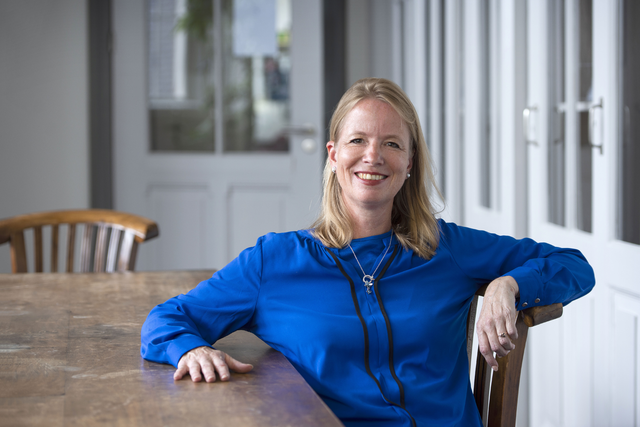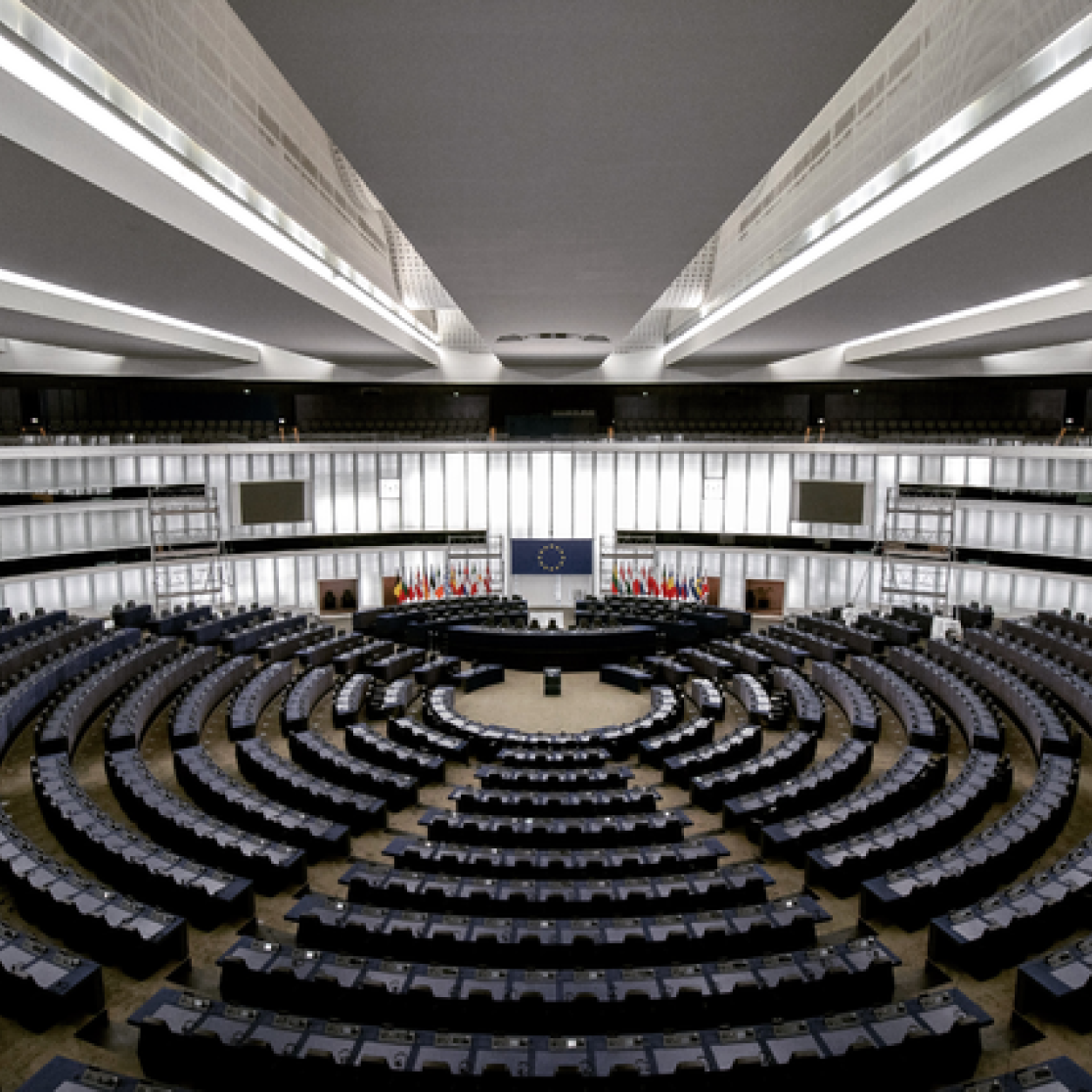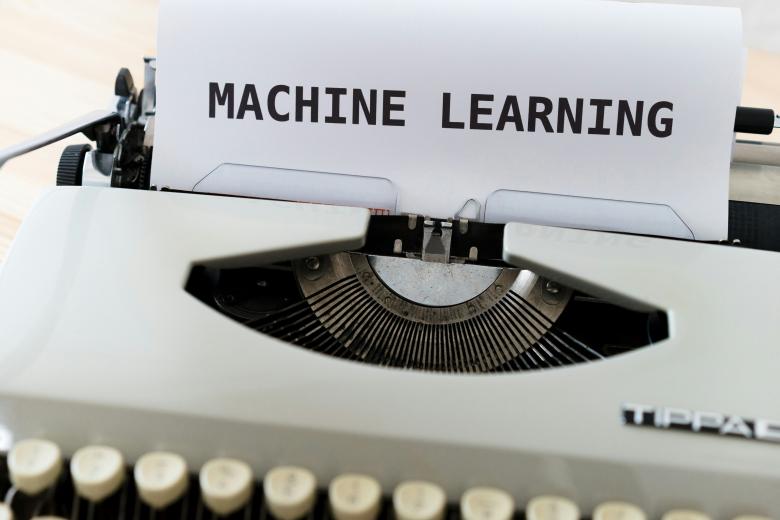Barking back at Brussels: Can national parliaments influence European decision-making?
“The Netherlands is part of the European Union, so Dutch political parties need a strategy on the EU, just like I need a strategy as a university Dean.” Recently appointed Dean of Maastricht University’s Faculty of Arts and Social Sciences Christine Neuhold answers Studio Europa Maastricht’s questions from her bedroom. The interviewer, for her part, asks her questions while in quarantine. “The good thing is that we’re all in the covid crisis together”, Neuhold says, laughing.
With less than two weeks to go until the Dutch parliamentary elections, Neuhold is the right person to speak to about the relationship between the Dutch parliament and the EU. Her research involves interviewing Dutch parliamentarians about their own perceived influence on European affairs. She asks: how can national parliaments influence what happens in Brussels and Strasbourg? And do they even want to?
Looking at Dutch election campaigns, she notices an emphasis on domestic issues. “In this election, everything is overshadowed by Covid. Hot topics like the curfew are not European issues as such, at least right now.” Throughout the interview and her academic work, Neuhold uses metaphors to make sense of the complex reality of European affairs. “This domestic focus makes sense. If your house is burning, you’ll try to put out the fire first”, she explains.

The alternative view is that not only should national parties focus on the domestic sphere, they simply shouldn’t engage with the EU at all. The argument is that the EU is all about pragmatism, painstaking compromises and ‘kicking the can down the road’; European cooperation is about solving problems practically, not about big ideas. “I think this is one of the topics where you can really have a debate”, Neuhold says. “But I would say that as an EU member, The Netherlands should have parties with at least some ideas on how to shape European integration. They don’t have to be elaborate plans but parties need a view, a baseline, just like I do as a Dean. People might say that nobody reads party manifestos but they are the blueprint for the policies that affect us.”
National parliaments: victims of European integration
The relative silence about the EU in national campaigns is not totally surprising. After all, in academic literature, national parliaments are considered ‘victims’ or ‘latecomers’ to European integration. Neuhold explains the roots of those labels: “The idea is that it’s difficult for national parliaments to exercise control over European affairs, both over what their own government does at the EU level and over institutions like the European Commission. On top of that, some say, the European Parliament has been given so many powers that national parliaments lose out.”
Discussions on the limited role of national parliaments have been around since at least the Maastricht Treaty, Neuhold estimates, but the issue was only tackled by academics later. Neuhold is considered a leading scholar on the topic and recently studied the influence national parliaments have over so-called trilogue meetings. During these informal negotiations, the European Parliament, the Council of the European Union and the European Commission ‘pre-discuss’ and often reach a consensus on legislative proposals.
Barking back at Brussels: can national parliaments influence Brussels decision-making?
“When I started researching the trilogue meetings, I had this mental image of a kennel with three dogs – the Commission, the Parliament, and the Council – and national parliaments trying to bark back like a watchdog, trying to break in and see what happens in Brussels”, Neuhold says. After all, in 2009, the Lisbon Treaty promised national parliaments more space to scrutinise and correct what goes on in Brussels.
But Neuhold’s conclusion from a detailed study of her two home countries – the Netherlands and Austria – is that there are not many perceived possibilities to influence trilogues in practical political processes. “You see that national parliaments might have tried, but they learned that it is hard to get information on the trilogues, and even harder to influence them”, Neuhold concludes.

However, there are habits in Brussels that Neuhold would erase sooner rather than later. “A big issue about trilogues is definitely the lack of transparency over the consensus that is reached. Most institutions publish their starting position, but the compromise they reach is very difficult to access before it’s fully implemented.” She takes her phone and waves it to the camera: “But it is easy to leak things these days; everybody has a phone. But in our interviews with Dutch parliamentarians, they said that they have the conclusions, but they cannot do anything with them, because they cannot disclose their source”, Neuhold explains. Then, passionately: “If it is a given that documents leak, just put them out there! Because at that point, the glass is not half full – it is just empty!”
Christine Neuhold is full Professor of EU Democratic Governance at Maastricht University (UM). Her research focuses on questions of accountability, with a special interest in the role national parliaments play in European decision-making. Last September, she became Dean of the Faculty of Arts and Social Sciences at Maastricht University.
This interview first appeared at MaastrichtEurope.nl
(Christine Neuhold photos: Moniek Wegdam)

The next few weeks we'll present academics, students and alumni talking about the upcoming Dutch elections in times of corona.
Also read
-
Four FASoS researchers awarded NWO XS grants
How do lobbyists use disinformation to sway policymakers? Who gets to shape the historical narrative of occupation and violence? Does growing inequality change the way citizens think about politics? And how have politicians defended “truth” across a century of media revolutions?
-
Reducing the Digital Divide: Empowering Students to Train, Evaluate, and Use AI Text Models
The Maastricht Law and Tech Lab, together with the Brightlands Institute for Smart Society (BISS), obtained a € 100.000 a Comenius Senior Teaching Fellow grant.
-
Green school playgrounds boost concentration and wellbeing
Children at schools with green playgrounds are better able to concentrate and display more social behaviour. This is the conclusion of a follow-up study within the long-running project The Healthy Primary School of the Future .